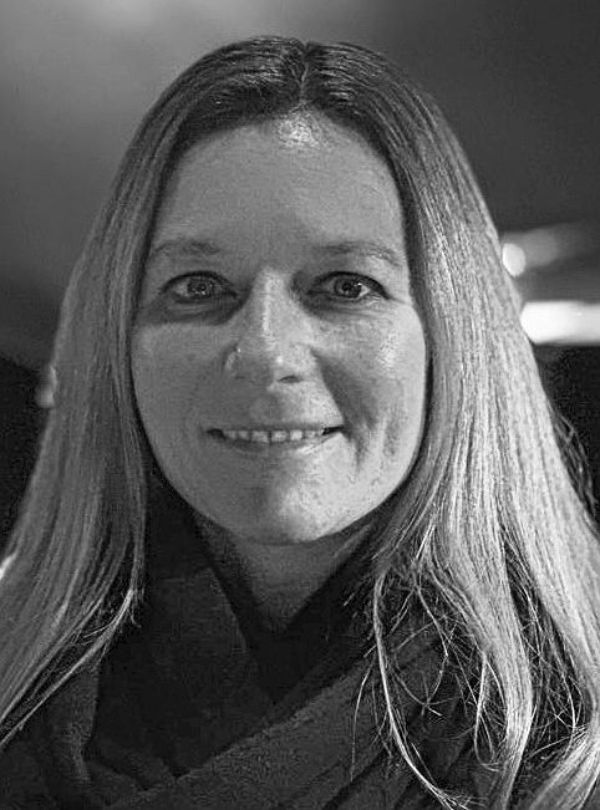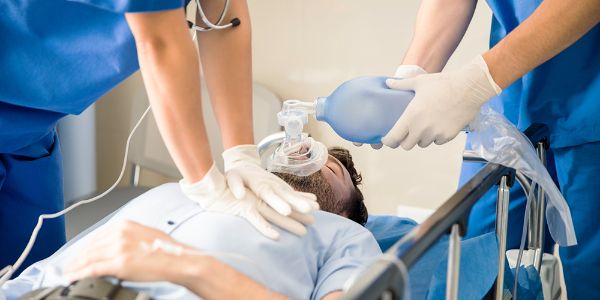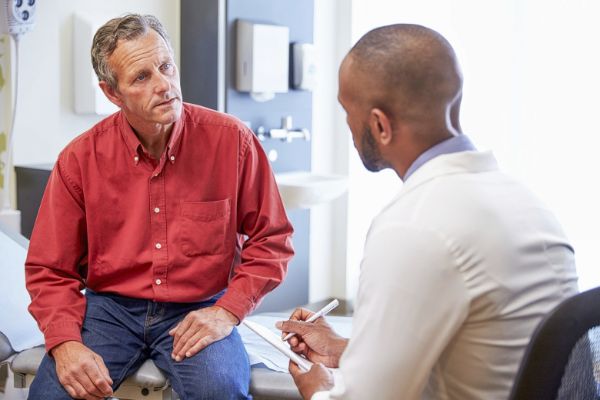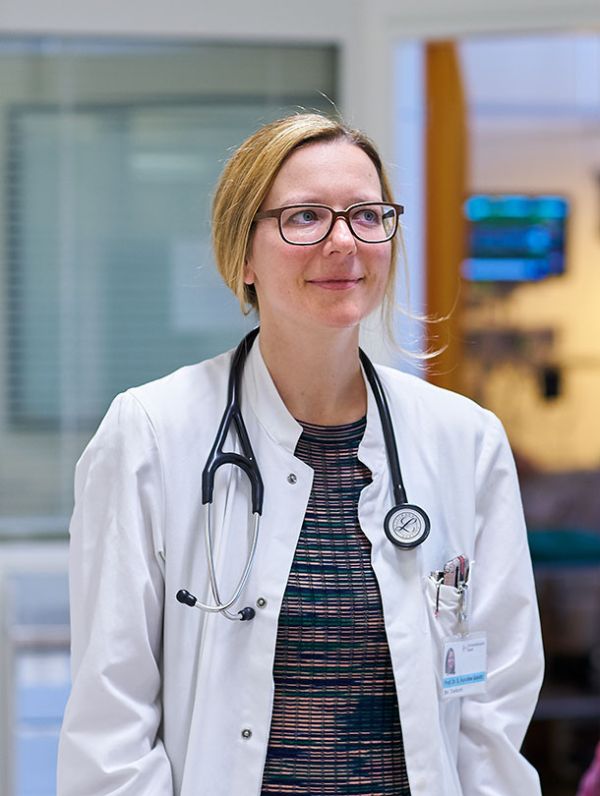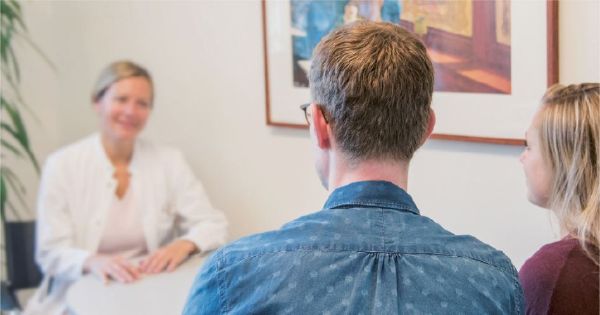
Medical communication
Medical Communication is a specialized department of Psychosomatics at the University Hospital Basel. Our main focus is on teaching and research. In addition to university teaching on communication skills in the longitudinal curriculum of medical studies, we provide practical training, workshops and courses for doctors and other healthcare professionals.
Our research projects, such as "Communication in emergency situations", the "ward round study" or "Communication of resuscitation status", aim to sustainably improve evidence-based communication between patients and doctors and thus increase the impact on the health and knowledge of our patients about their own state of health ("health literacy").
Clinically, medical communication has established the special interprofessional consultation hour "Post ICU Care". Patients often suffer from long-term psychological and physical consequences of their critical illness after a stay in the intensive care unit. With this interprofessional consultation, we offer a specialized point of contact for affected patients and their relatives.
Approach & Contact
Address
|
University Hospital Basel 4031 Basel |
By tram/bus
|
Take bus line 30 to "Bernoullianum" station and walk 30 meters. |
By car
|
Please use the parking garage City, entrance Schanzenstrasse or Klingelbergstrasse |
By bike
|
You will find parking spaces directly in front of the building on the corner of Klingelbergstrasse / Hebelstrasse or at the main entrance of the University Hospital Basel, Petersgraben 4, 4031 Basel |
Contact us
|
Medical Communication Secretariat Erika Huggel +41 61 328 56 62 erika.huggel@usb.ch Tuesday and Thursday: 9 - 12.00 / 13.00 - 17.00 h |
Offer
Communication in doctor-patient consultations forms the foundation of good medical treatment and, alongside professionalism and medical knowledge, is one of the core competencies of medical practice. Numerous studies have shown that successful communication improves patients' satisfaction and knowledge about their own state of health and, above all, plays an important role in their long-term mental health.
Post-ICU consultation
The post-ICU consultation is a special consultation for patients and their relatives after a stay in the intensive care unit. The aim of this consultation is to discuss and process what has been experienced in the intensive care unit, for example after resuscitation or other serious illness. In the case of mostly complex illnesses, the aim is to ensure that the patient's medical history is reviewed and clarifications and therapies are completed where necessary and appropriate.
Difficult issues often arise between life and death and it is not uncommon for relatives of ICU patients to develop post-traumatic stress disorders. The interprofessional consultation is conducted by Prof. Sabina Hunziker (Deputy Head of Psychosomatic Medicine, LA Medical Communication) and Mr. Christian Emsden (MScN, Head of Nursing APN Intensive Care Unit/Dipl. Exp. Intensive Care NDS HF).
Please make an appointment:
E-mail: erika.huggel@usb.ch
Tel. +41 61 328 56 62 (Tue and Thu only)
Teaching / further training
Communication training workshops
We are confronted with communication difficulties every day when dealing with our patients. Exchanging information, breaking bad news, caring for patients with no tangible complaints, dealing with demanding patients and relatives all pose communication challenges for us. Simple techniques can help us to carry out these tasks in a more professional and structured way.
Our communication training courses are aimed at the entire spectrum of medical staff, with a focus on doctors and nurses, as well as students as part of university teaching.
Visit accompaniment
The doctor's visit is a basic element of patient-centered medicine. Communication with patients, the care team and relatives is particularly important here, as this is where important topics relating to the current medical situation are usually discussed and further therapies are determined. The ward round is therefore essential in terms of both organization and content and requires good communication skills in addition to medical knowledge. Complex medical, psychosocial and organizational tasks have to be solved with various healthcare professionals, relatives and patients within the normally short duration of the visit of around 10-20 minutes per patient.
The medical communication team offers ward rounds support for junior doctors with direct feedback and teaching in medical communication.
Longitudinal curriculum for medical students at the University of Basel
The longitudinal curriculum in medical communication provides medical students at the University of Basel with professional training in evidence-based doctor-patient communication in various clinically relevant medical situations from the first year of study until graduation.
It starts with general communication techniques, the difference between professional and private communication in the first year. In the second year, students learn how to communicate in a patient- and doctor-centered way. This includes a practical part with a new innovative web-based program where they can make an appointment with a trained simulation patient and take a medical history. The simulation patient can thus give the students direct feedback on the interview and they later receive additional professional feedback from Prof. Hunziker and her team. In the third year, they learn more about diagnostic techniques, such as specific history taking and case presentation in different clinical settings. In addition, bedside teaching takes place in small groups in real-life settings to practice these techniques.
In the fourth year of study (1st Master), courses and lectures are held on the topic of "breaking bad news". These techniques can then be practiced and applied by the students in the practical year. In the final year of study, students are prepared for the state examination in the form of role plays with simulated patients. Overall, the courses are very complex and time-consuming in terms of organization, as they are held in small groups with a large number of trainers and simulation patients involved, who also receive regular training from the Medical Communication team.
Longitudinal curriculum for medical students at the University of Basel
The longitudinal curriculum in medical communication provides medical students at the University of Basel with professional training in evidence-based doctor-patient communication in various clinically relevant medical situations from the first year of study until graduation.
It starts with general communication techniques, the difference between professional and private communication in the first year. In the second year, students learn how to communicate in a patient- and doctor-centered way. This includes a practical part with a new innovative web-based program where they can make an appointment with a trained simulation patient and take a medical history. The simulation patient can thus give the students direct feedback on the interview and they later receive additional professional feedback from Prof. Hunziker and her team. In the third year, they learn more about diagnostic techniques, such as specific history taking and case presentation in different clinical settings. In addition, bedside teaching takes place in small groups in real-life settings to practice these techniques.
In the fourth year of study (1st Master), courses and lectures are held on the topic of "breaking bad news". These techniques can then be practiced and applied by the students in the practical year. In the final year of study, students are prepared for the state examination in the form of role plays with simulated patients. Overall, the courses are very complex and time-consuming in terms of organization, as they are held in small groups with a large number of trainers and simulation patients involved, who also receive regular training from the Medical Communication team.
Research
The "Medical Communication" department is considered a pioneering department in Switzerland. Doctors are constantly faced with difficult communication challenges. How do you tell patients about a serious diagnosis, how do you talk to relatives about the prognosis of a critically ill patient? Prof. Sabina Hunziker and her team are conducting in-depth research in this area and enabling the implementation of evidence-based communication in everyday clinical practice.
The research focus of Medical Communication at the University Hospital Basel is on communication and interaction between doctors, patients and relatives, as well as within treatment teams. Various ongoing and completed studies shed light on the comprehensive field of medical communication.
Patient presentation at the bedside or on the doorstep - Multicenter study
Chief physician rounds in the focus of a randomized, controlled multicenter study, funded by the Swiss National Science Foundation (SNSF): best presentation trial
Although ward rounds are one of the most important pillars of inpatient care, there have been few studies investigating the best approach to patient engagement. During patient rounds, physicians often use medical terminology that patients may not be familiar with. This can lead to uncertainty or misunderstandings. However, understanding and knowledge are important prerequisites for the successful implementation of therapies.
In an SNSF-supported multicenter study, we compared the influence of patient presentation (directly at the patient's bedside versus in front of the patient's room) on patient-relevant outcomes. We were able to show that both patient groups had comparable knowledge about their medical condition and care. On the other hand, patients for whom the patient presentation took place at the bedside reported more confusion due to medical terminology and uncertainty as a result of the medical discussion within the medical team. In addition, less sensitive topics were addressed in the group with the bedside presentation. Although the direct contact between patient and treatment team was longer in the bedside presentation group and was perceived by the patients to be longer, this form of ward round proved to be more time-efficient.
The study, which was conducted at Basel University Hospital, Aarau Cantonal Hospital and Baselland Cantonal Hospital, thus provided important insights into the preferences of both patients and the treatment team and where we should continue to focus our education and training in order to further optimize ward round communication in the respective form of implementation.
An article with the main results was happily published in a high-ranking specialist journal and received international attention.
Chief physician rounds in the focus of a randomized, controlled multicenter study, funded by the Swiss National Science Foundation (SNSF): best presentation trial
Although ward rounds are one of the most important pillars of inpatient care, there have been few studies investigating the best approach to patient engagement. During patient rounds, physicians often use medical terminology that patients may not be familiar with. This can lead to uncertainty or misunderstandings. However, understanding and knowledge are important prerequisites for the successful implementation of therapies.
In an SNSF-supported multicenter study, we compared the influence of patient presentation (directly at the patient's bedside versus in front of the patient's room) on patient-relevant outcomes. We were able to show that both patient groups had comparable knowledge about their medical condition and care. On the other hand, patients for whom the patient presentation took place at the bedside reported more confusion due to medical terminology and uncertainty as a result of the medical discussion within the medical team. In addition, less sensitive topics were addressed in the group with the bedside presentation. Although the direct contact between patient and treatment team was longer in the bedside presentation group and was perceived by the patients to be longer, this form of ward round proved to be more time-efficient.
The study, which was conducted at Basel University Hospital, Aarau Cantonal Hospital and Baselland Cantonal Hospital, thus provided important insights into the preferences of both patients and the treatment team and where we should continue to focus our education and training in order to further optimize ward round communication in the respective form of implementation.
An article with the main results was happily published in a high-ranking specialist journal and received international attention.
Communicate/Prophetic study
A cardiac arrest puts people in a life-threatening situation, which places a heavy burden on both patients and their families and has an impact on psychological morbidity. In initial studies, we were able to show that around 40% of relatives of resuscitation patients exhibit symptoms of post-traumatic stress disorder. Even one year after resuscitation, 17% of relatives met the definition of clinically relevant depression.
In the Communicate study at the University Hospital Basel, we systematically survey anxiety and depression symptoms, symptoms of post-traumatic stress disorder, alexithymia and neurological and physical impairments in patients after resuscitation and their relatives 3 months, 1 and 2 years after resuscitation. We record a number of potential risk factors and investigate their influence on these long-term consequences with the aim of prevention, early detection and treatment.
In addition, we are investigating how and whether a communication strategy can reduce the morbidity of relatives of critically ill patients, particularly with regard to post-traumatic stress disorder.
Prognosis and outcome after cardiac arrest
An early, reliable prognosis after cardiac arrest can facilitate decision-making with regard to further medical treatment. In our study, we are investigating new innovative biomarkers with the aim of improving existing risk scores for prognosis assessment and enabling better prediction.
The results of our study should make it possible to improve both the medical treatment of patients after cardiac arrest and their psychosocial care.
Communicate/Prophetic study
A cardiac arrest puts people in a life-threatening situation, which places a heavy burden on both patients and their families and has an impact on psychological morbidity. In initial studies, we were able to show that around 40% of relatives of resuscitation patients exhibit symptoms of post-traumatic stress disorder. Even one year after resuscitation, 17% of relatives met the definition of clinically relevant depression.
In the Communicate study at the University Hospital Basel, we systematically survey anxiety and depression symptoms, symptoms of post-traumatic stress disorder, alexithymia and neurological and physical impairments in patients after resuscitation and their relatives 3 months, 1 and 2 years after resuscitation. We record a number of potential risk factors and investigate their influence on these long-term consequences with the aim of prevention, early detection and treatment.
In addition, we are investigating how and whether a communication strategy can reduce the morbidity of relatives of critically ill patients, particularly with regard to post-traumatic stress disorder.
Prognosis and outcome after cardiac arrest
An early, reliable prognosis after cardiac arrest can facilitate decision-making with regard to further medical treatment. In our study, we are investigating new innovative biomarkers with the aim of improving existing risk scores for prognosis assessment and enabling better prediction.
The results of our study should make it possible to improve both the medical treatment of patients after cardiac arrest and their psychosocial care.
"Do not resuscitate" (DNR) - "Please do not resuscitate"
A national, representative survey of the Swiss general population
Cardiac arrest is still one of the most common causes of death today. If cardiac arrest occurs outside the hospital, the chances of survival are around ten percent. If the cardiac arrest occurs in hospital, around one in five people survive.
Our representative survey of the Swiss population showed that people drastically overestimate how successful resuscitation is after a cardiac arrest. For example, 80 percent of respondents preferred to be resuscitated, regardless of the circumstances. The most important predictor for this decision was the assessment of the chance of survival. The average chance of survival without neurological restrictions was estimated at 40 to 60 percent.
Consequently, the desire for resuscitation is based on a misjudgment in many cases. It is therefore important to explain what resuscitation means in the event of cardiac arrest so that patients can make an informed decision that makes sense for them.
SNSF-funded multicenter study on resuscitation discussion
On admission to hospital, the measures to be taken in the event of sudden cardiac arrest are routinely discussed and documented with each patient, usually at the beginning of their stay. Taking into account the patient's medical condition, their wishes and preferences are decisive. These discussions are complex and require good communication. So far, there has been no evidence on this.
In a randomized multicenter study, we are investigating the effect of different communication strategies on this conversation. We are particularly interested in the patient's perspective. The aim is to help improve the conversation and decision-making regarding the measures to be taken in the event of sudden cardiac arrest.
Checklist-guided Shared Decision-making for Code Status Discussions in Medical Inpatients
On admission to hospital, the measures to be taken in the event of sudden cardiac arrest are routinely discussed and documented with each patient, usually at the beginning of their stay. Taking into account the patient's medical condition, their wishes and preferences are decisive. These discussions are complex and require good communication. So far, there has been no evidence on this.
In a randomized multicenter study, we are investigating the effect of different communication strategies on this conversation. We are particularly interested in the patient's perspective. The aim is to help improve the conversation and decision-making regarding the measures to be taken in the event of sudden cardiac arrest.
Checklist-guided Shared Decision-making for Code Status Discussions in Medical Inpatients
SNSF-funded multicenter study on resuscitation discussion
On admission to hospital, the measures to be taken in the event of sudden cardiac arrest are routinely discussed and documented with each patient, usually at the beginning of their stay. Taking into account the patient's medical condition, their wishes and preferences are decisive. These discussions are complex and require good communication. So far, there has been no evidence on this.
In a randomized multicenter study, we are investigating the effect of different communication strategies on this conversation. We are particularly interested in the patient's perspective. The aim is to help improve the conversation and decision-making regarding the measures to be taken in the event of sudden cardiac arrest.
Checklist-guided Shared Decision-making for Code Status Discussions in Medical Inpatients
Effect of communication interventions on resuscitation decisions
Systematic review and meta-analysis of the effect of communication interventions on resuscitation decisions
Communication interventions, in particular resuscitation videos as decision aids, were associated with an increased likelihood of patients refusing resuscitation in the event of cardiac arrest. There was also evidence of a link between communication interventions and increased knowledge about resuscitation.
Patient simulator research
In patient simulator research, we are working with the Medical Intensive Care Unit team to investigate the influence of important communication elements such as leadership statements. This has shown that targeted instruction via management communication can significantly improve resuscitation performance. Fortunately, the results of these studies have been incorporated into the resuscitation guidelines of the American Heart Association since 2010. It is now recommended to teach communicative skills regarding teamwork and leadership behavior in resuscitation courses. A large multicenter, randomized study is currently underway with an American center to investigate the influence of leadership allocation and group size in the resuscitation situation.
Patient simulator research
In patient simulator research, we are working with the Medical Intensive Care Unit team to investigate the influence of important communication elements such as leadership statements. This has shown that targeted instruction via management communication can significantly improve resuscitation performance. Fortunately, the results of these studies have been incorporated into the resuscitation guidelines of the American Heart Association since 2010. It is now recommended to teach communicative skills regarding teamwork and leadership behavior in resuscitation courses. A large multicenter, randomized study is currently underway with an American center to investigate the influence of leadership allocation and group size in the resuscitation situation.
"Communication pocket guide"
The project to establish a guide for communication at the University Hospital Basel, or Northwest, a "communication pocket guide", is being planned.
Team
Management
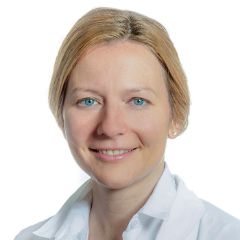
Prof. Dr. Sabina Hunziker Schütz
Leitende Ärztin Medizinische Kommunikation, Stv. Chefärztin Psychosomatik
Medizinische Kommunikation, Psychosomatik
Research team
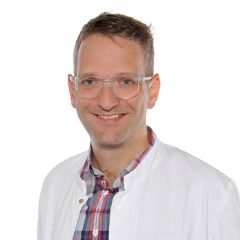
Dr. Christoph Becker
Oberarzt
Medizinische Kommunikation, Innere Medizin / Notfallstation
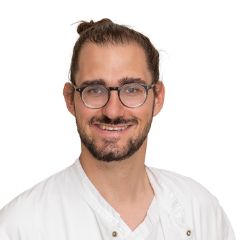


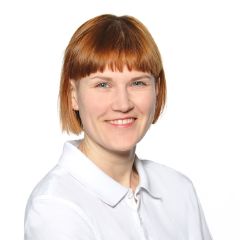
Research team

Secretariat



